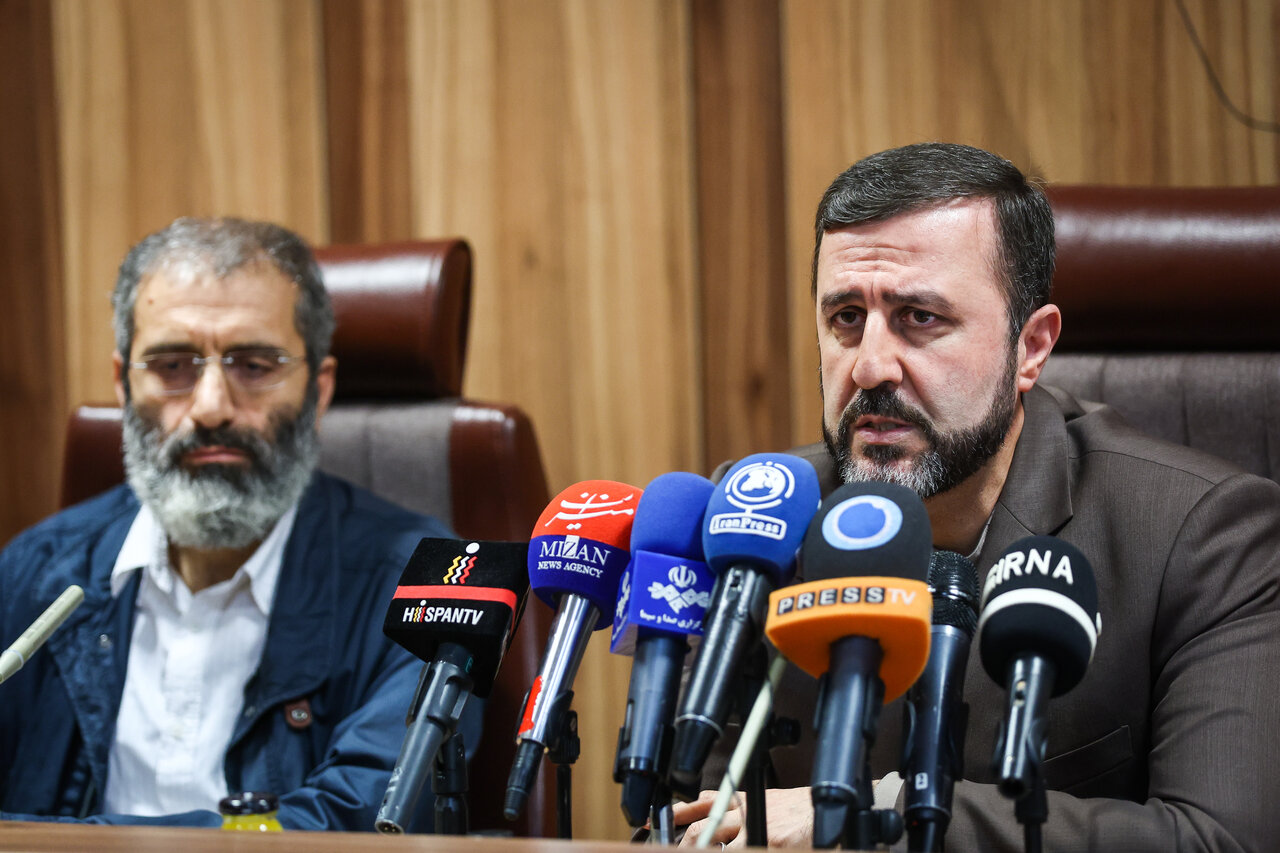U.S. assassination of Gen. Soleimani should garner intl. attention: Iran rights chief

TEHRAN - The international community should direct its attention toward the U.S. assassination of Lieutenant General Qassem Soleimani in 2020 in the Iraqi capital Baghdad, Iran’s top human rights official says.
The comments were delivered by Kazem Gharibabadi, secretary of Iran’s High Council for Human Rights, during a meeting in Tehran on Tuesday to discuss the U.S. crimes against international law and breaches of human rights.
“We must identify, highlight and expose U.S. crimes against humanity, against the Iranian nation and other nations in different times. These crimes should be exposed at the domestic and international levels,” Gharibabadi remarked as he pointed to decades-long terrorist acts committed by the U.S. across the globe.
Pointing to terrorism and the importance of dealing with the issue, the official said, “The U.S. criminal operation to martyr Soleimani should be the focus of attention. The first court session on that issue will be held on June 19, and the accusations against 70 American defendants on complicity in the martyrdom of General Soleimani will be investigated.”
On January 3, 2020, General Soleimani, Abu Mahdi al-Muhandis, second-in-command of Iraq’s Popular Mobilization Units (PMU), and their companions were assassinated near Baghdad International Airport in a U.S. drone strike authorized by then-President Donald Trump.
Due to their critical roles in the war against the Daesh terrorist group, notably in Iraq and Syria, both leaders were held in the highest regard across West Asia.
In other parts of his remarks, Gharibabadi discussed Israel’s brutality in the Gaza Strip, saying that Washington is involved in all the atrocities the Zionist regime is doing in the region and that Israel is committing these crimes with full assistance from the United States.
Israel has been indiscriminately bombarding the Gaza Strip since October 7, massacring over 35,200 Palestinians, the majority of them women and children.
The attack followed after Hamas made a surprise attack on southern Israel in retribution for the regime’s intensified atrocities against the Palestinian people.
The Israeli regime’s brutalities in Gaza have been described as a violation of international human rights law, war crimes, crimes against humanity, and genocide.
“The United States has always prevented the investigation of these crimes in various international organizations and mechanisms,” the human rights chief lamented.
“The so-called rights advocacy regime of America has supported the Zionist regime politically, militarily, logistically and financially in the Gaza war; therefore, the crimes of the Zionist regime in Gaza and the direct US role in it should be highlighted.”
Gharibabadi further emphasized that Washington can never claim to be advancing international peace and security, highlighting the U.S. military’s presence and its occupied bases in several nations.
“The reason for this presence in 80 countries with 750 bases is America's militaristic attitude. Beyond that, the deployment of American nuclear weapons in European bases shows this country is not after peace and security at all.”
He added, “How can this country claim to be trying to establish peace and security? The countries where the U.S. nuclear weapons are deployed… have not had any security problems in recent decades.”
Arrest of Assadollah Assadi breached 1961 Vienna Convention
Gharibabadi also referred to the fact that about a year has passed since the release of Assadollah Assadi, an Iranian diplomat who was jailed in Germany and Belgium on false charges, saying the first and most notable point in this regard is that the actions of the German government in arresting an Iranian diplomat were completely against international law and the 1961 Vienna Convention on Diplomatic Relations, without any evidence or reason.
“During the time Mr. Assadi was in prison in Germany and Belgium, the injustices committed by these self-proclaimed human rights advocates against the Iranian diplomat were somewhat covered in the media, but very minimally,” he added.
The secretary of Iran’s High Council for Human Rights also stressed that Tehran tried to expose some of these cases within the framework of human rights and media mechanisms.
“A country that considers itself a human rights advocate has violated all basic human rights principles in its treatment of someone who was unjustly detained, from the right to contact family to the right to worship, health, the right to be held in prison spaces, and various forms of mental and psychological torture,” the human rights chief stated.
Gharibabadi continued by saying that “Mr. Assadi documented all of these while he was in prison, and we also gained access to a version of these handwritten notes before his release and used this as the basis for correspondence with international human rights officials, including the High Commissioner for Human Rights and the President of the Human Rights Council, and countries, where we reminded them of these human rights violations, raised serious objections, and asked for explanations on these matters.”
Gharibabadi said, “What happened to the Iranian diplomat in Germany and Belgium, as two countries claiming to uphold human rights? Are they acting on even a fraction of the slogans they preach in the field of human rights? It is not hidden from us that they do not act on these slogans, but it is very important to expose their human rights claims in these specific cases and concrete examples; just like what we are witnessing today in Gaza and the widespread atrocities.”
Gharibabadi, who also acts as deputy Judiciary chief for international affairs, emphasized that these cases are also concrete examples that refute the human rights claims of these countries in the field of human rights, stating that “Western countries, especially the United States, have no authority to express opinions in the field of human rights.”
Leave a Comment